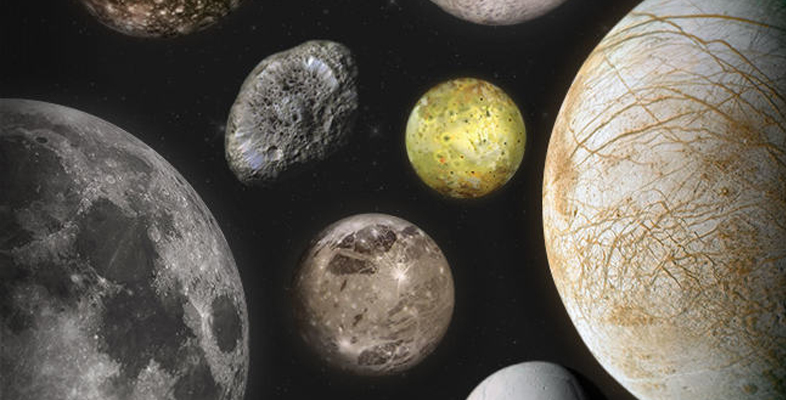Discover the amazing diversity of moons in our Solar System.
There are lots of moons in our Solar System. The Earth is the only planet with just a single moon. Some are bigger than ours. Many are much smaller. Some moons have ongoing volcanic eruptions. Others have rivers of liquid methane. A small handful may even be home to primitive life.
This free course, Moons of our Solar System, will allow you to explore the rich diversity of moons in our Solar System. With experts from The Open University, you’ll explore the fundamental processes that have shaped them, and the relationship between our Moon and the Earth.
In November 2018, learners on this course joined Open University planetary science students in a live ‘planets and moons chat’ video webcast with the main author David Rothery and guests, where they were able to ask questions live.
A recording of the event is available: http://live.kmi.open.ac.uk/webcast/0e77fZ224. To access it, you need to be signed in using an OU account. You will find links to recordings of previous ‘planets and moons chat’ throughout the course.


This course is accredited by the CPD Standards Office. It can be used to provide evidence of continuing professional development and on successful completion of the course you will be awarded 24 CPD points. Evidence of your CPD achievement is provided on the free Statement of Participation awarded on completion.
Anyone wishing to provide evidence of their enrolment on this course is able to do so by sharing their Activity Record on their OpenLearn Profile, which is available before completion of the course and earning of the Statement of Participation.
Enrolling on the course will give you the opportunity to earn an Open University digital badge. Badges are not accredited by The Open University but they're a great way to demonstrate your interest in the subject and commitment to your career, and to provide evidence of continuing professional development.
Once you are signed in, you can manage your digital badges online from My OpenLearn. In addition, you can download and print your OpenLearn statement of participation - which also displays your Open University badge.
The Open University would really appreciate a few minutes of your time to tell us about yourself and your expectations for the course before you begin, in our optional start-of-course survey. Once you complete the course we would also value your feedback and suggestions for future improvement, in our optional end-of-course survey. Participation will be completely confidential and we will not pass on your details to others.
Earn this free Open University digital badge if you complete this course! The badge can be displayed, shared and downloaded as a marker of your achievement. The badge is awarded for completing the course and passing the quizzes.
Course learning outcomes
After studying this course, you should be able to:
- develop an awareness of the nature and diversity of moons in our Solar System, and their significance
- describe the compositions and nature of the surfaces and interiors of moons
- describe the nature and history of volcanic activity on several moons, assess and be aware of which moons may have subsurface oceans, and the implications for hosting native life
- describe and be aware of the history of discovery and exploration of moons, and of future prospects
- reflect and suggest ways in which resources from the Moon may help future space exploration.
First Published: 30/07/2018
Updated: 22/01/2024
